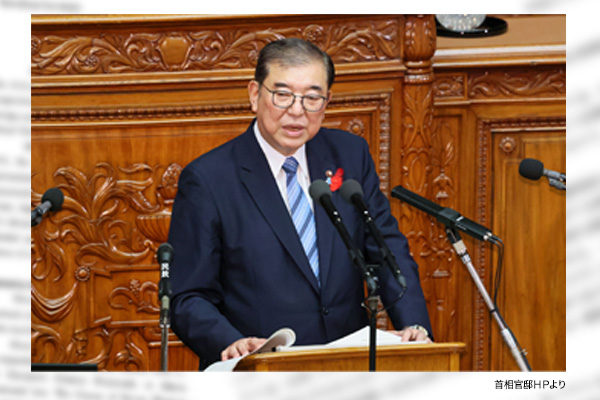The idea of an “Asian NATO (North Atlantic Treaty Organization)” that new Prime Minister Shigeru Ishiba had touted during the ruling Liberal Democratic Party’s leader election campaigns disappeared three days after he became prime minister. In his policy speech on October 4 at the National Diet, he simply sealed off his political beliefs. Was he frightened by the rejection of the idea from Japan’s ally and partners or did he want to avoid provocative rhetoric before his imminent dissolution of the House of Representatives for a general election? Anyway, it was revealed that Ishiba, though being a military geek, is not a political leader who can draw up an excellent national strategy.
Illusionary Asian NATO
At his first press conference since becoming LDP leader on September 27, Ishiba emphasized his idea of creating an Asian NATO. “Ukraine today is Asia tomorrow,” said Ishiba in an article submitted to the U.S. Hudson Institute just before his election as LDP leader. “The creation of an Asian version of NATO is essential to deter China.”
The essence of an alliance is a blood bond to protect each other. It means a treaty under which nations with shared interests and values provide mutual assistance, mainly in military. However, Ishiba’s vision seems to be deliberately missing the essence of the military alliance. Lying at the heart of NATO’s deterrence is Article 5 of the North Atlantic Treaty for collective defense against armed attacks. It provides for the exercise of the right of collective self-defense by stating that “an armed attack against one or more of [the parties] shall be considered an attack against them all.” However, Ishiba’s Asian NATO vision has no reference to the article or words to that effect.
In response, U.S. Assistant Secretary of State for East Asian and Pacific Affairs Daniel Kritenbrink dismissed Ishiba’s vision as “too early.” Above all, there are differences among Indo-Pacific countries over how to engage in deterrence against China. Foreign Minister Subrahmanyam Jaishankar of India, which joins the Quadrilateral Security Dialogue along with Japan, the United States, and Australia, also brushed aside Ishiba’s vision, saying, “We don’t have that kind of strategic architecture in mind.”
Constitutional amendments as prerequisite for Asian NATO
In recent years, Japan has been in a more severe international environment than during the U.S.-Soviet Cold War. For that reason, the Shinzo Abe administration revised the interpretation of the constitution to allow the partial exercise of the right of collective self-defense, enhancing the mutuality of the Japan-U.S. alliance. The Fumio Kishida administration decided to raise defense spending to 2% of gross domestic product and secured counterstrike capabilities. In order for the new Ishiba administration to build an Asian NATO on top of these measures, the first step is to revise the current Japan-U.S. Security Treaty into a U.S.-Japan Mutual Defense Treaty to enable full-spectrum collective defense. This will require political determination, a great deal of time, and skillful maneuvering.
If a Japan-U.S. Mutual Defense Treaty is realized, Japan may break away from its heavy dependence on the U.S. and enhance the Japan-U.S. alliance into one on a par with the U.S.-British alliance, as urged by Ishiba. However, the prerequisite for the revision of the security treaty is constitutional amendments. In his policy speech, Ishiba added constitutional amendments only as an afterthought, expressing his hope that the ruling and opposition parties would engage in constructive discussions and actively deepen public debate on the matter. There was no indication of any willingness to bet his political life on constitutional amendments, or any political leader who was serious about building an Asian NATO.
Hiroshi Yuasa is a Planning Committee member and a senior fellow at the Japan Institute for National Fundamentals. He is also a columnist for the Sankei Shimbun newspaper.


